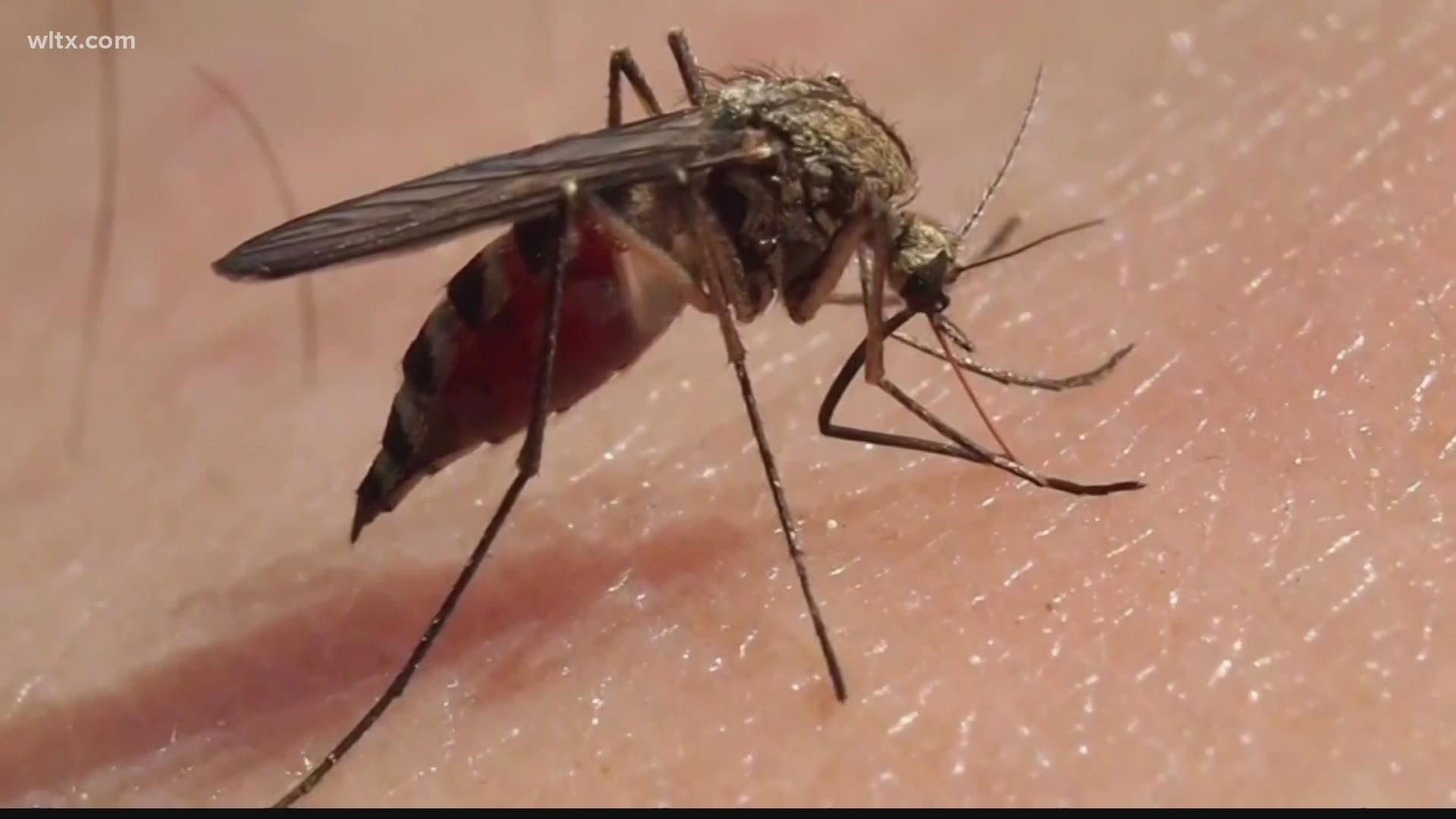COLUMBIA, S.C. — State health officials have officially confirmed 6 human cases of West Nile virus in Richland County.
Although the numbers are not high now, the South Carolina Department of Health and Environmental Control (DHEC) has still declared this a "rising outbreak."
"Fortunately most people will not get sick from this, but one in five will experience a fever and other symptoms," said State Epidemiologist Dr. Linda Bell.
RELATED: DHEC confirms multiple cases of human West Nile Virus, declares outbreak in Richland County
According to the Association of Professionals in Infection Control and Epidemiology, an outbreak is a sudden rise in the number of cases of a disease. Sometimes a single case of an infectious disease may be considered an outbreak if the disease is rare or has serious public health implications.
The City of Columbia confirmed a case of West Nile in a dead bird over the summer and began spraying for mosquitoes that carry the virus. The last round of spraying was in early August.
News19 asked Columbia Mayor Daniel Rickenmann if the city will continue spraying after the confirmed cases.
"We are monitoring the situation and will do whatever necessary to keep our residents safe," he said. "At this time, we don't see a reason to sound the alarm but we will continue to work closely with our health professionals and respond accordingly."
Jon Manchester, the chief of interpretation at Congaree National Park, said the advice DHEC gave for protection is similar to the advice given to park guests every day.
"Here at Congaree, we have thousands of insects including mosquitoes so we always encourage people to have bug spray handy," Manchester said. "We also suggest wearing long sleeves or pants, and you can even wear a bug net if that makes you more comfortable."
Manchester says the best way to stay safe from illness transmitted by mosquitos is to stay prepared and aware.
"Just be cautious, and avoid mosquito bites altogether if you can. Even if some bites won't make you sick, they can still be irritating," Manchester said.
DHEC said most patients that contract West Nile will have no symptoms. However, 1% of those people will develop a serious neurologic illness such as encephalitis or meningitis. The health agency is asking the public to take the outbreak seriously and protect themselves.
If you think you have contracted the West Nile virus, DHEC asks that you reach out to your doctor for a checkup where you will likely have to have a blood test to determine an infection.

